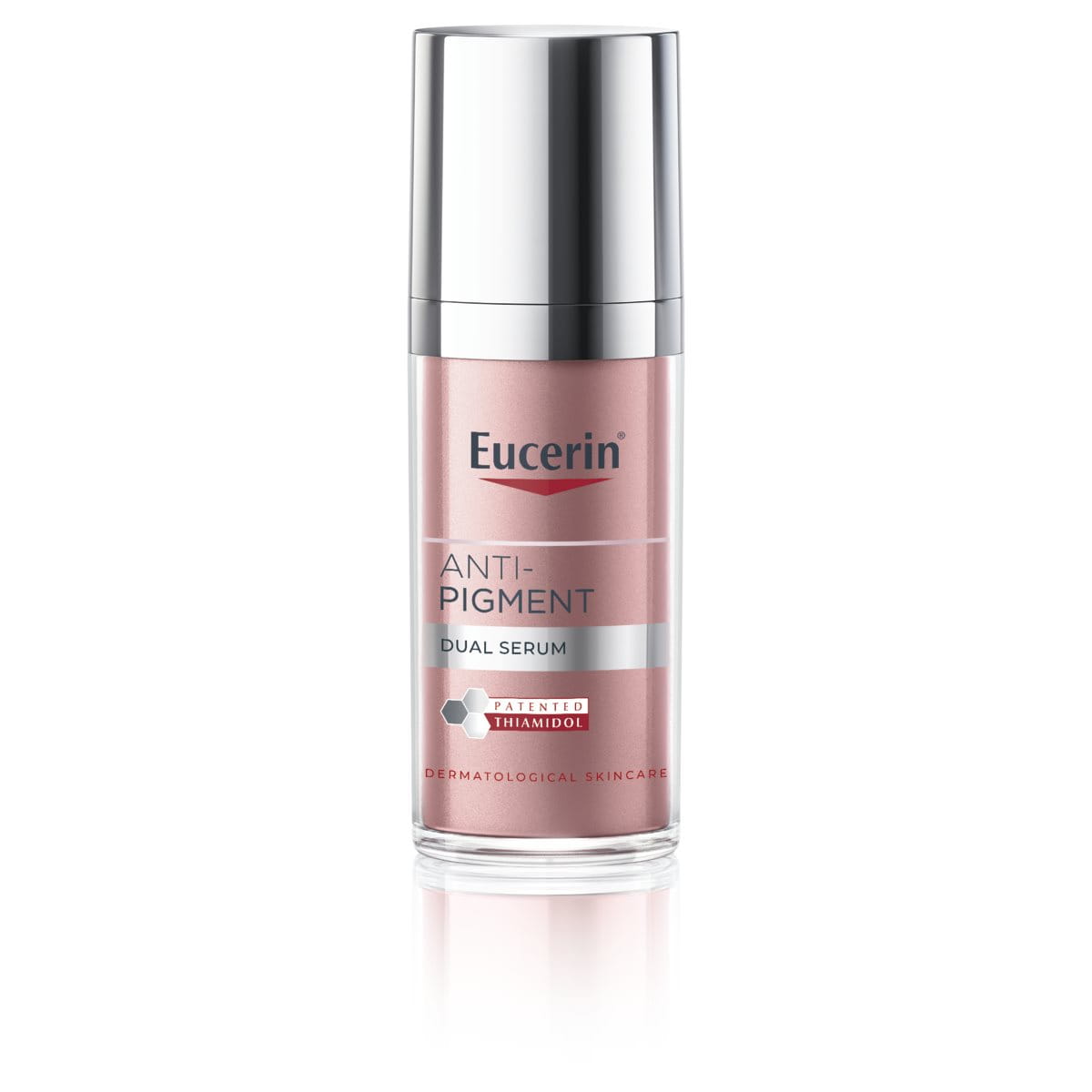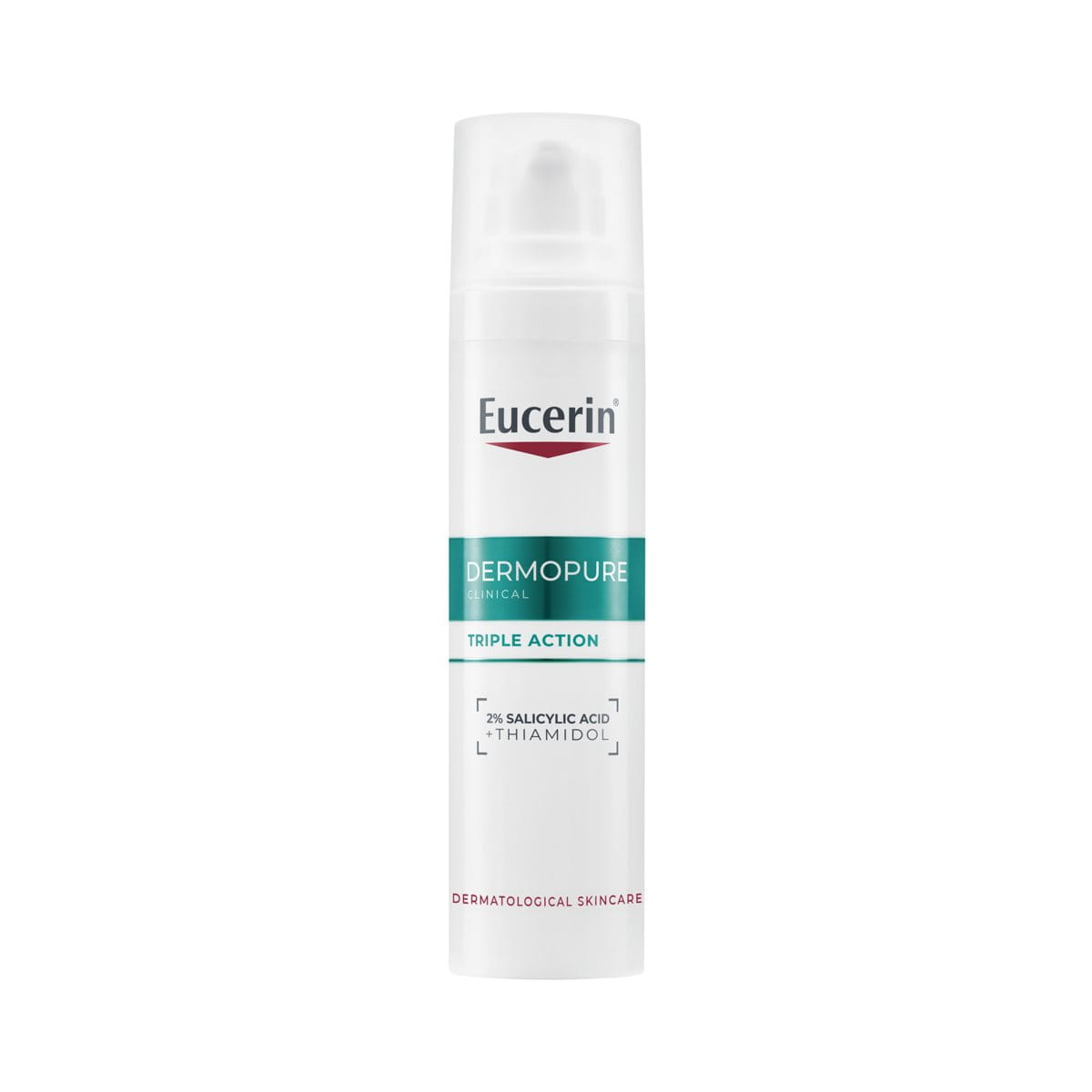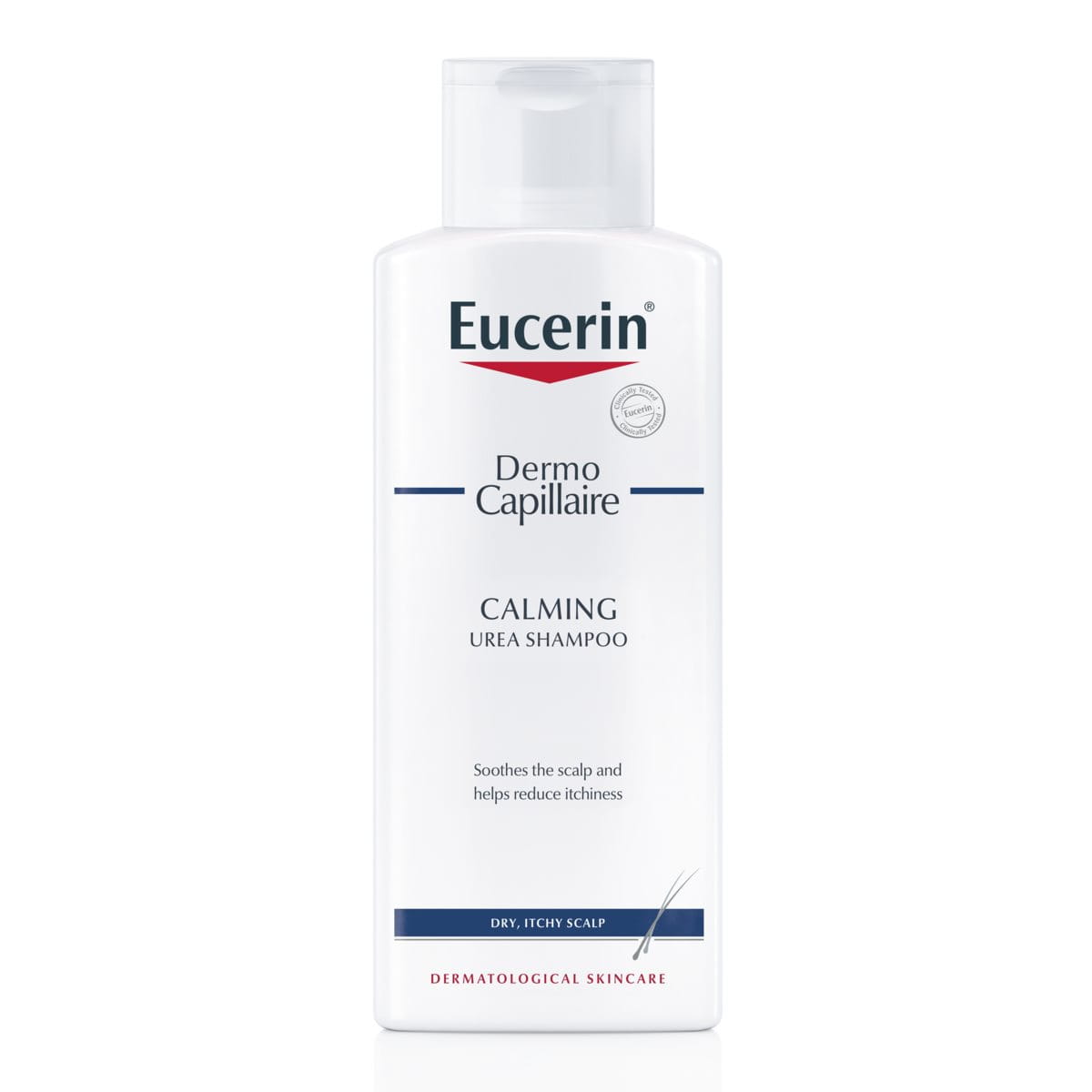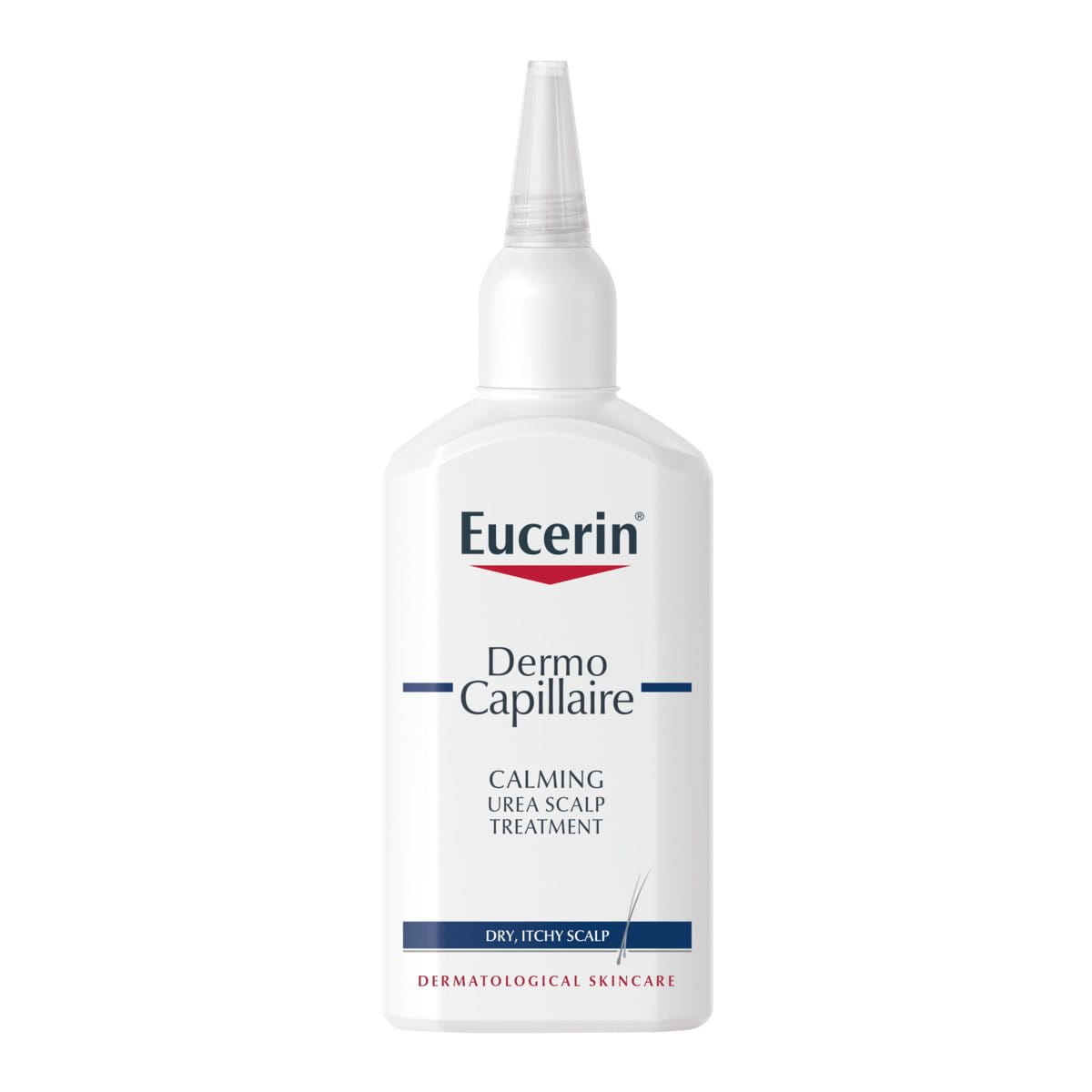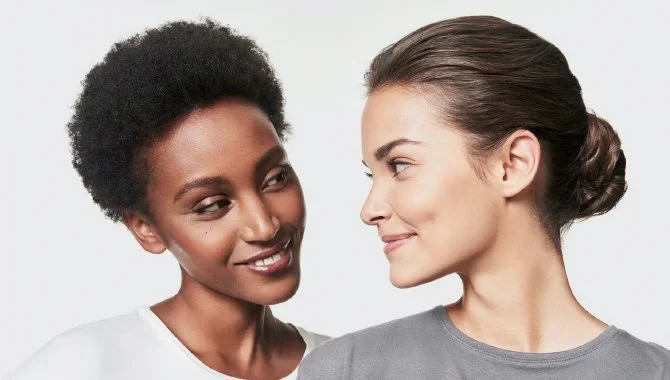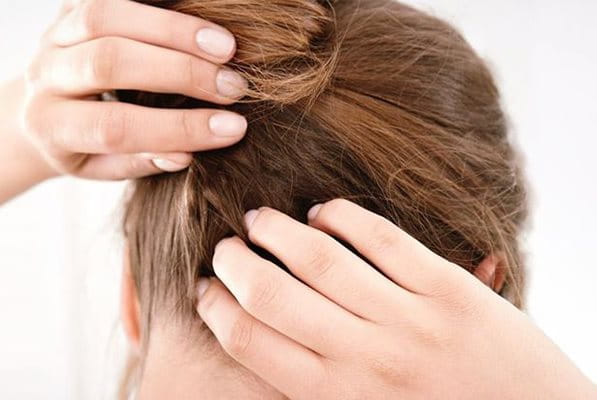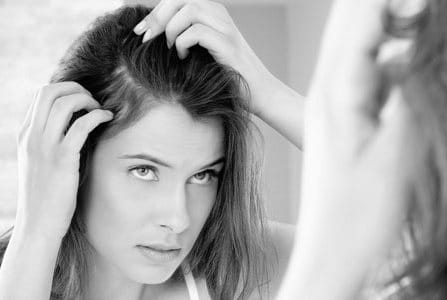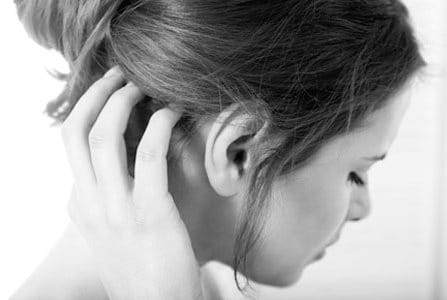Thinning hair is an issue that can cause distress and affect one's personal self-image. It is normal to lose hair every day; if you are losing a substantial amount, however, it may mean that your hair is thinning. This is an issue that affects both men and women, and more and more people are now choosing to seek help rather than suffer in silence.
First Signs & Symptoms of Thinning Hair
What is thinning hair and hair loss?
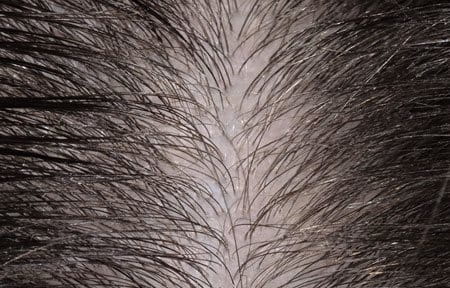
- If your hair’s active growth phase or anagen phase becomes shorter, your hair follicles produce smaller, thinner and less visible hairs, leading to thinning hair.
- If this anagen phase halts completely, the affected hair follicles stop producing new hair altogether – leading to hair loss.
- Women are more likely to suffer from thinning hair, while men are more likely to experience receding hair, bald patches or total hair loss.
Causes of Hair Loss
What are the main causes of hair loss and thinning hair?
Alopecia
- The main causes of hair loss are hereditary in nature: both male and female pattern baldness, also known as androgenetic alopecia, occur when the hair follicles are, for genetic reasons, sensitive to androgens (the male sex hormones) and dihydrotestosterone (DHT).
- When DHT interacts with the hair follicles, this sensitivity causes hair growth to slow or stop, leading to thinning hair or hair loss. In addition, especially in female pattern hair loss, other causal factors are involved.
- This differs from alopecia areata as alopecia areata is induced by an autoimmune reaction that attacks the hair follicles.
Pattern Baldness
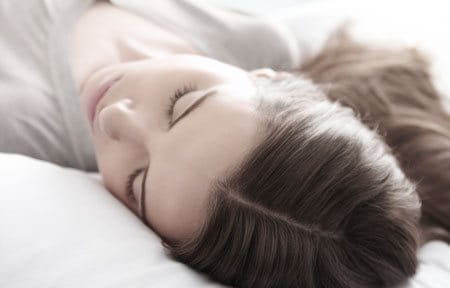
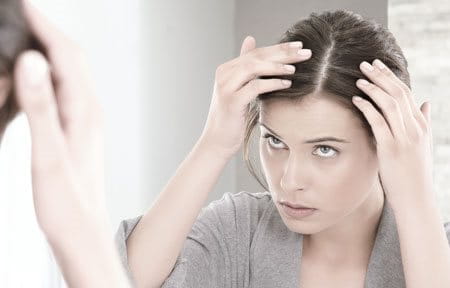
- You can inherit this trait from either your mother’s or your father’s side of the family. And while hair loss or thinning hair is often thought of as something that only affects older people, the condition can start as early as your teens, 20s or 30s.
- Most people experience some hair thinning as they age, but not everyone is affected to the same degree.
- Men with male pattern baldness usually develop a receding hairline, hair loss at the crown, or both. Over time, men with hereditary hair loss can end up becoming completely bald.
- Women with female pattern baldness, on the other hand, tend to develop thinning hair as opposed to total hair loss. This usually sees their hair become thinner across the scalp, especially at the hairline. The crown may be affected, but hereditary hair loss in women rarely proceeds to total baldness.
Seborrheic Dermatitis
- Seborrheic Dermatitis is linked to irritation from a yeast called malassezia, which thrives in areas of skin which are very oily, and causes micro inflammations which lead to skin and scalp itchiness.
Microinflammations
- Microinflammations are also a leading contributor to hair thinning and hair loss. They occur when the skin around your hair follicles becomes inflamed and weakens the hair root, making you more vulnerable to hereditary hair loss.
- As hair growth is an extremely energy consuming process, shortages of energy supplied to the hair follicle are not uncommon.
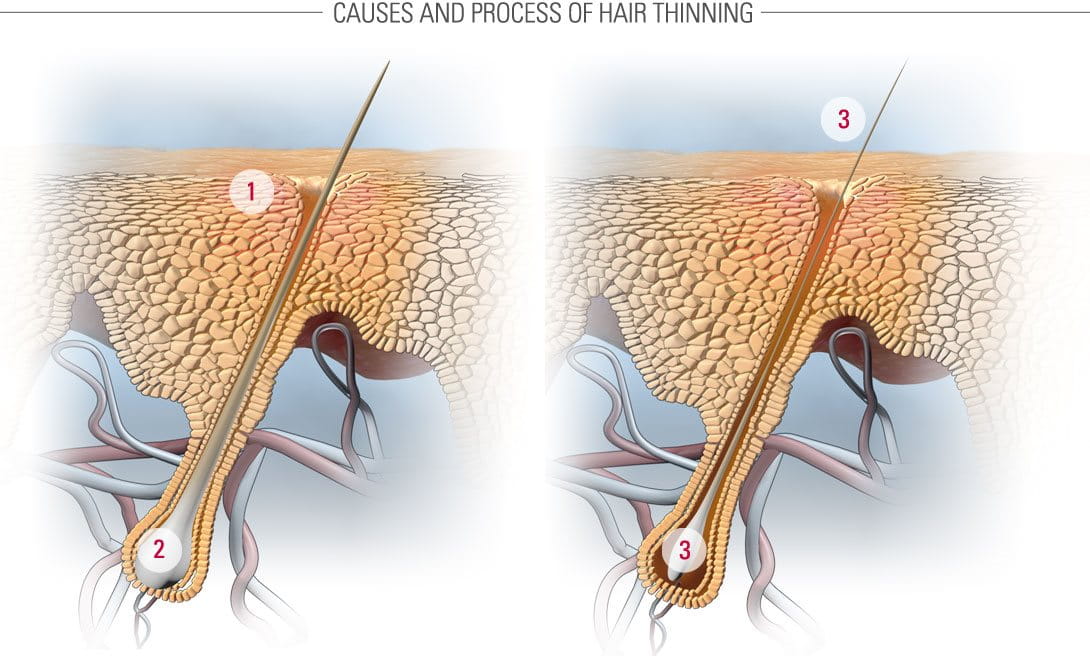
What are microinflammations?
They’re mild inflammations of the skin. They’re so mild, in fact, that even clinical testing won’t pick them up. But if we study skin tissue affected by microinflammations, we can detect the presence of inflammatory immune cells – in other words, the skin is responding to irritation with inflammation and thereby attempting to repair itself. If these skin cells are then subjected to further irritation, the skin can flip into a “true” inflammatory response.
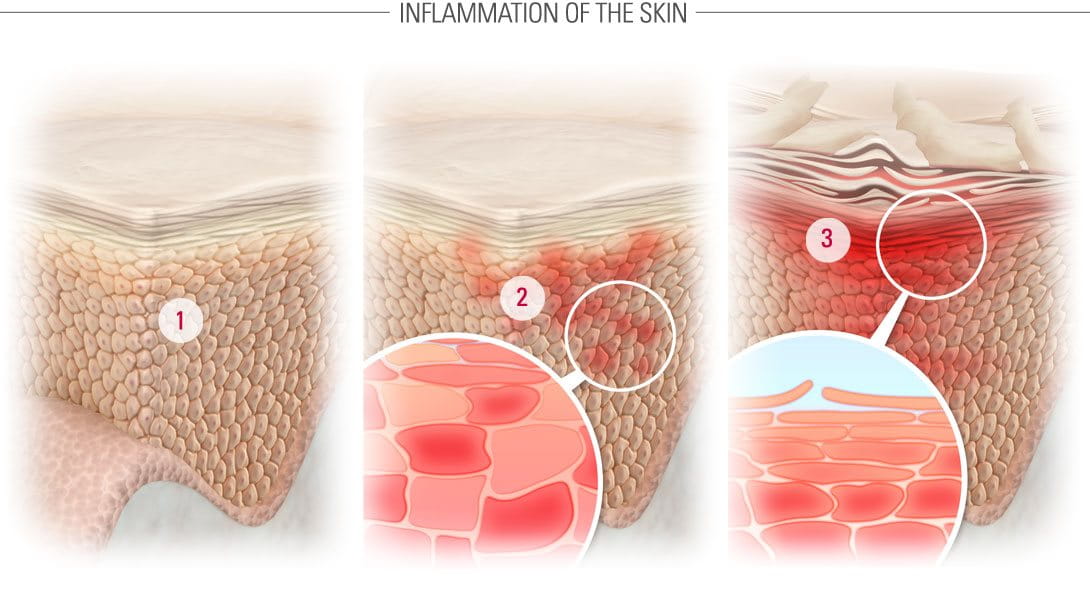
How are they related to scalp conditions?
There’s growing evidence that microinflammations of the scalp are involved in most common scalp disorders – from thinning hair and dandruff, to scalp dryness, itchiness and sensitivity.
If you experience sudden hair loss or brittle hair, you may have an underlying health problem such as thyroid disease, iron deficiency, or an autoimmune disease. Some medications can also cause hair loss. Contact a dermatologist in all instances to get further information.
Common Myths
Common myths surrounding thinning hair
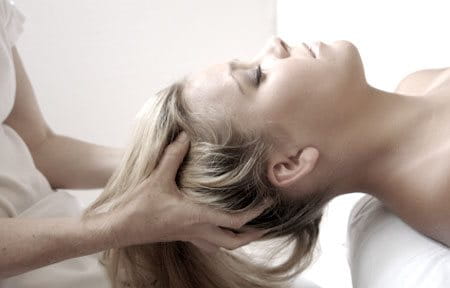
Some of the most widespread misconceptions about thinning hair and hair loss include:
- Massaging your scalp with oils will regrow hair. While scalp massage may feel pleasant and can improve circulation, there's no strong evidence that using natural oils alone will reverse hair loss or stimulate regrowth
- Shaving your head will make your hair grow back thicker.
- Standing on your head promotes hair growth.
- There are “miracle cures” that can make your hair grow back.
There’s no evidence to suggest that any of the above are true.
Solutions
Recommended Treatment to Avoid Thinning Hair
There are a variety of treatments and remedies that can help with thinning hair and hair loss, that don't require expensive hair transplants including:
Eucerin DermoCapillaire Scalp and Hair Treatment
Eucerin DermoCapillaire Calming Urea Shampoo and Eucerin DermoCapillaire Calming Urea Scalp Treatment - Clinically and dermatologically proven to delay hair thinning caused by hereditary hair loss, these products are enriched with urea and lactate to soothe and relieve itching and dryness while giving your hair a healthy shine and supple feel.
Multivitamins
Hair can be affected by overall health so ensuring you're not malnourished will ensure that new hair continues to generate. A blood test can help to discern if you're missing any nutrients, but it's advisable to not take multivitamins if you're already getting the nutrients you need.
Our brand values

We deliver a holistic dermo-cosmetic approach to protect your skin, keep it healthy and radiant.

For over 100 years, we have dedicated ourselves to researching and innovating in the field of skin science. We believe in creating active ingredients and soothing formulas with high tolerability that work to help you live your life better each day.

We work together with leading dermatologist and pharmacist partners around the world to create innovative and effective skincare products they can trust and recommend.
